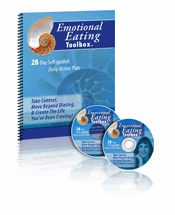 I posted this quote (attributed to Rose Tremain) on my bedroom wall when I was sixteen and now it lives on my website--you can find it (here).
I posted this quote (attributed to Rose Tremain) on my bedroom wall when I was sixteen and now it lives on my website--you can find it (here).
Here’s a bit about what it means to me:
Make sure you are writing the script you want to be living.
Get clear on your priorities, your values, and your goals and then spend your energy accordingly. Spending the time to do this will pay off in ways you won’t believe. Ask yourself, “Are you running your life or is your life running you?” If your life isn’t what you want it to be, spend the energy, the time, or the dollars to get the help you need to get on YOUR track.
Don’t wait for someone else to yell, “Action!”
Don’t wait for permission from anyone else to live your life. Make sure to create space for you. If it seems like there is never time or opportunity for the things you value or for your priorities, there is something wrong.
By the same token, don’t neglect yourself in the care you extend. Remember--put your oxygen mask on first. It’s essential. Self-care and attention to your needs will make not only your life, but the world, a better place.
Be brave. Don’t let stage fright stop you.
Even Oscar winners get stage fright. Courage does not mean having no fear. Courage means doing the hard thing anyway. Acknowledge your stage fright. Take a deep breath, be afraid, and then do the thing you need to do. Just take the first small step. We tend to have more regret around the things we didn’t do than the things we did that didn’t go perfectly.
Don’t be afraid to improvise.
You don’t have to know every step of the process in order to get started. If you have a goal or a dream and you can identify one step that you can take towards it—get moving. Plans unfold and evolve as we live them. Things that originally seemed impossible from a distance aren’t usually so imposing once we find a way to start approaching them. Take action and let the momentum and the plan unfold and build as you go.
This entry was inspired by Diana who blogs over at Iowa Avenue and also has a blog called The Menu Coach Chronicles. She tagged me to write a Six Word Memoir. It’s now my turn to pass the blogging baton by tagging people myself.
The rules are simple--write your own six word memoir following these five rules:
- Write your own six word (max) memoir
- Post it on your blog and include a visual illustration if you want
- Link to the person who tagged you in your post.
- Tag at least five more blogs.
- Leave a comment on the tagged blogs with an invitation to play.
I invite the following bloggers to play. Some of you I know and some of you I haven't met. I just love your blogs and am interested in what you'll have to say. Hope you decide to play along.
Karly, Gregory Anne, Jay, Henrik and Stephanie --Tag—you’re it!









